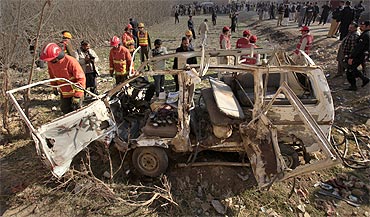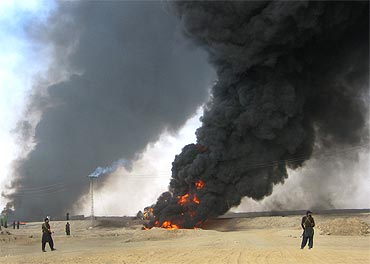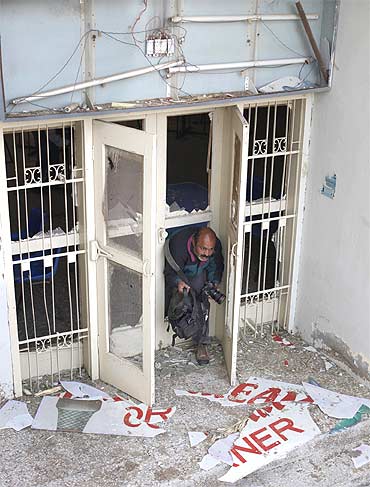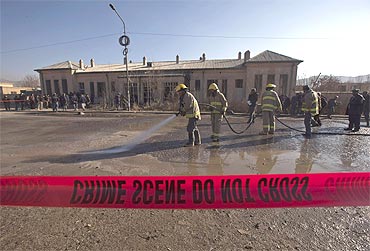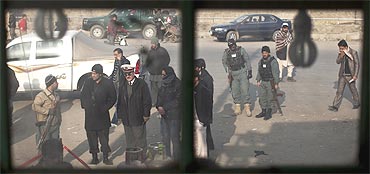 | « Back to article | Print this article |
'Pakistan is the epicentre of terrorism'
In his first briefing in 2011 on the United States National Security Strategy Update, Joint Chiefs of Staff Chairman Admiral Mike Mullen, while replying to a query, blurted out that Pakistan is the epicenter of terrorism in the world.
"I have said it before and I'll say it again, it (Pakistan) is the epicenter of terrorism in the world right now, and it deserves the attention of everybody to do as much as we can to eliminate that threat," Mullen said during an appearance at the Foreign Press Centre in Washington, DC.
He argued that "progress in Pakistan is critical in terms of the region," and pointed out that "since I've had this job, I've never talked or wanted to leave the impression that it was about one country or the other, because it's about the region."
Thus, he said that there cannot be any progress in Afghanistan without progress in Pakistan and that this meant shutting down the terrorist safe havens in that country.
Reportage: Aziz Haniffa in Washington, DC
'This threat is evolving'
But he asserted, "It is absolutely critical that the safe havens in Pakistan get shut down. We cannot succeed in Afghanistan without that. I've had many meetings with (Pakistan army chief) General (Ashfaq) Kayani on this subject and he has evolved his military against this threat."
"This threat is evolving as well, because it's not just the Haqqani network anymore, or Al Qaida, or TTT [Tehrik-i-Taliban Pakistan, or Pakistani Taliban], the Afghan Taliban, or LeT [Lashkar-e-Tayiba], it's all of them working together in ways that two years ago they absolutely did not," he noted.
'That is a call for action'
Incidentally, Mullen has made several trips to Pakistan since the US launched its war on terror. When asked if he believed Pakistan is doing enough to shut down the terrorist havens within its borders and what excuse Islamabad offers him every time he expresses these concerns, the top military official said, "I don't go into specifics of discussions that I've had, private conversations that I've had."
"Strategically, the safe havens have got to go. When I talk about the region, it isn't just Afghanistan and Pakistan. We had a question earlier about Iran. I talk about this with my Russian counterpart. The neighbours in the area include India. I think we all have a responsibility and we all want to see this resolved as rapidly as possible. That is a call for action for everybody that's involved in this," he argued.
'The Taliban have lost momentum'
He said, "There's no question that the Taliban have lost momentum in parts of the south and in the east, and that the growth and development of Afghan National Security Forces is progressing in a much more organised way at a quicker pace than we had expected
Mullen noted, "A couple of weeks ago I had the opportunity to go to Kandahar and Helmand Provinces to visit with our troops and see first-hand the good work they and their Afghan partners are doing. The enemy is being pushed out of population centers; he is being denied sanctuary, he is losing leaders by the score, and his scare tactics are being rejected by local citizens."
'The enemy is losing'
But when told that he had painted an extremely rosy picture of the success of coalition forces, Mullen quickly backpedaled to say, "If I left you the impression that it was rosy, that's the wrong impression. It is a very difficult fight. It is a very difficult time in this conflict."
He added cautiously, "I am encouraged, but I do not want to understate in any way, shape or form the difficulty of the task. It clearly continues to be severe."
